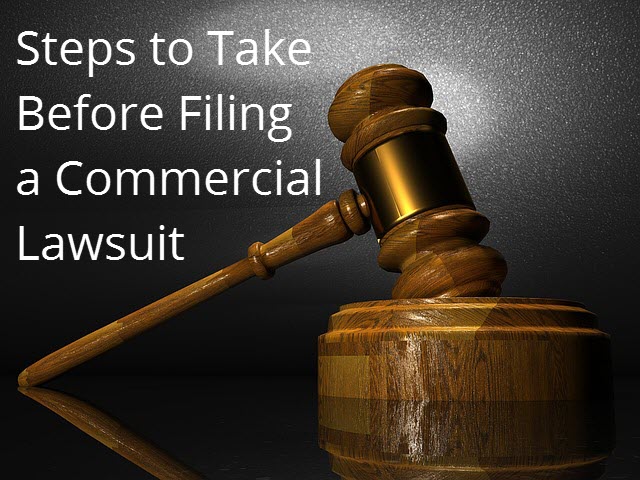
Litigators are trained on the law and the litigation process, not on how to run and grow a business. Furthermore, many litigators fail to fully appreciate and properly advise their clients on how hugely distracting the lawsuit will be, and the huge risk this imposes on the business.
Making matters more complicated is the economic reality that litigation firms profit from clients that file and prosecute lawsuits. Indeed, unless the litigation firm has clients that pay them to file and prosecute lawsuits, the litigation firm dies.
Commercial litigation should only be filed after a management team has conducted a pre-litigation analysis that includes at least the following factors:
- Legal analysis based on the law and facts, including statute of limitations and review and analysis of evidence.
- Economic damages analysis
- How much can you collect; what is the business value of the likely outcome
- Estimate and recoverability of legal fees and costs.
- Risks of loss
- Economic, reputation, injury to goodwill, opportunity cost caused by distraction and momentum loss
- Ability of the management team to stay focused on running and growing the business during the litigation
- Is there a business solution that is likely to achieve a favorable business result with less risk to the business?
Because litigation firms are economically incentivized to have clients who sue, it is a best practice to have the analysis led by a lawyer with no economic stake in the business decision to file or not file the lawsuit. In fact, this is what a Fortune 100 company General Counsel does for the Fortune 100 company. This independence helps the management team make better decisions.
Don't forget: Litigation firms view litigation as the answer to commercial disputes and most litigation firms expect to profit from your lawsuit win, lose or draw.
Finally, keep in mind that commercial disputes are business problems that can often be solved by business solutions. For this reason, I believe that most companies can avoid commercial litigation all together if the management team focused on item six above for 60 to 120 days before filing the lawsuit, if the statute of limitations allows.
(Is there a business solution that is likely to achieve a favorable business result with less risk to the business?)
Approach the problem with new thinking. Hire consultants if necessary to explore the situation and attempt to define a paradigm shift that can achieve a favorable business result with less risk to the business, and do not underestimate the risks that litigation will impose on the business.
Never file a lawsuit without following the pre-litigation process first.
If you believe the cost of hiring a lawyer is a barrier, watch the video, listen to Mark and understand how he thinks both as a business owner and an attorney:
About the Author: Mark D. Walters
 Mark Walters offers legal services to executives and business owners seeking practical legal excellence at a predictable price.
Mark Walters offers legal services to executives and business owners seeking practical legal excellence at a predictable price.
Mark’s services are offered on a part time and contractual basis, allowing the business to better manage legal costs and their bottom line. Mark works as a part time member of our clients’ management and executive team and are committed to business growth and business savvy risk management.
His firm also provides litigation services to business and individuals in the areas of intellectual property, complex commercial litigation and employment law.